We cannot escape fallout from a Russian attack on Ukraine: Dutton
A Russian attack on Ukraine would be felt across the Indo-Pacific, emboldening China, distracting the US and driving up energy prices, says Peter Dutton.
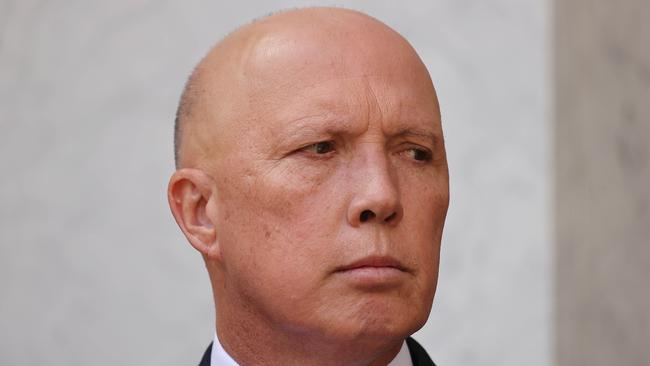
Defence Minister Peter Dutton says the fallout of a Russian attack on Ukraine would be felt across the Indo-Pacific, emboldening China, distracting the US and driving up energy prices.
Amid signs that Russia is close to launching an invasion of Ukraine, Australia has relocated its embassy from Kiev to Lviv, a western Ukrainian city close to the Polish border.
Mr Dutton said Defence was ready to evacuate the post’s three diplomats if the security situation deteriorated further.
US President Joe Biden at the weekend threatened Russian leader Vladimir Putin with “swift and severe costs” should Russia invade Ukraine, amid new American intelligence suggesting an attack could come as soon as Wednesday.
With China and Russia recently declaring a “no limits” partnership, Mr Dutton said Australia’s upcoming federal poll would be the “most important election in our lifetime” for safeguarding national security.
“The most alarming development in all of this is the very publicly declared close bond now between China and Russia – and Iran is on the edges, as is North Korea,” he said.
“Countries of that nature coming together should wake people from a slumber that they have been in for way too long.”
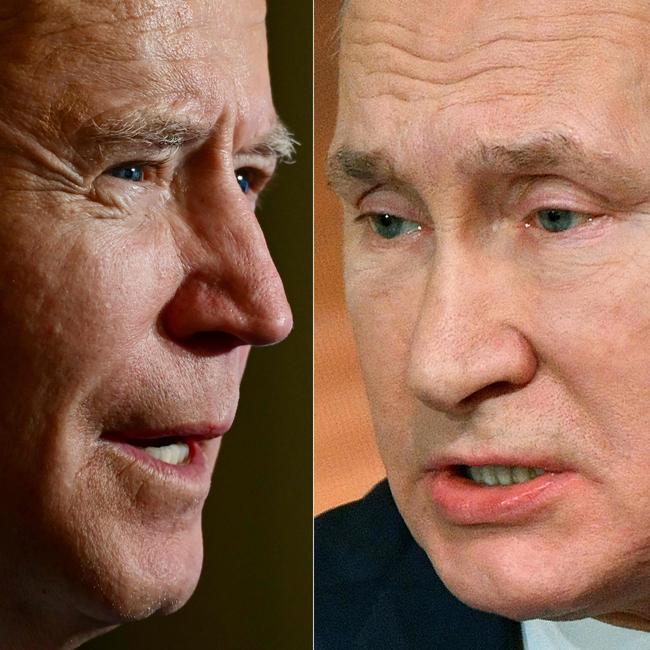
Mr Dutton said there would be direct implications for Indo-Pacific security if Russia invaded its US-backed neighbour, including the prospect of fresh Chinese aggression towards Taiwan.
“As there was during the period of the Cold War and during periods of instability in Eastern Europe over decades, there are flow-on effects,” he said.
“Whether that means the US is distracted by that conflict and drawn away from the Indo-Pacific, or an impact on energy prices. Ultimately, it leads to greater instability.”
He said the potential for China to conduct co-ordinated action against Taiwan was “something that the planners will be monitoring very closely”.
The warning came as Scott Morrison blasted Russia’s “autocratic, unilateral” bullying of Ukraine and China’s “chillingly silent” position on the crisis.
“The coalition of autocracies that we’re seeing, seeking to bully other countries, is not something that Australia ever takes a light position on,” the Prime Minister said.
The US, which has about 80,000 troops stationed across Europe, announced at the weekend that it was transferring 160 US troops out of Ukrainian territory along with all but the most essential diplomatic staff.
Mr Biden spoke to the Russian President for more than an hour on Saturday, warning that an invasion would result in immediate and severe consequences, including grievous loss of his country’s international standing.
“President Biden was clear with President Putin that while the US remains prepared to engage in diplomacy, in full co-ordination with our allies and partners, we are equally prepared for other scenarios,” the White House said.
Russia has amassed up to 130,000 troops along the Ukrainian border and recently began conducting training exercises with allied Belarus, but it has repeatedly denied that it intended to invade Ukraine.
Mr Dutton, who last week said China was backing Anthony Albanese to win the election, said voters needed to consider which party was better able to deal with the escalating national security threats.
“There can only be one answer to that question. Labor are weak on China, they are weak on border protection,” the Defence Minister said. Labor home affairs spokeswoman Kristina Keneally branded Mr Dutton’s comments as “divisive and dangerous”.
“This is a desperate government, so desperate to distract from its own incompetence that it is now weaponising national security … in the lead-up to an election, and weaponising it in the context of a Liberal leadership contest,” she told the ABC’s Insiders.
“It flies in the face of the advice of the ASIO director-general Mike Burgess when he said using fear of foreign interference to stoke division in the community is as corrosive as foreign interference itself.”
While the Biden administration’s focus remains largely on Eastern Europe, US Secretary of State Antony Blinken has revealed the US will re-establish an embassy in the Solomon Islands.
The move, to counter China’s influence in the politically troubled Pacific island, was announced in Fiji, where Mr Blinken met virtually with 18 Pacific leaders to stress Washington’s ongoing commitment to the region.
The US also issued its new Indo-Pacific strategy, promising to counter China’s “coercion and aggression” and deliver Australia nuclear-powered submarines “at the earliest possible date”.
The highly anticipated document, a formalisation of the US “pivot to Asia” that began under the Obama administration, fleshed out a US promise to keep the Indo-Pacific region “connected, prosperous, secure, resilient”. It followed Friday’s Quad meeting in Melbourne where Mr Blinken said the US commitment to preserving Ukraine’s autonomy underscored its commitment to the Indo-Pacific, where “those very same principles are crucial to enduring stability”.
Prior intelligence had suggested Russia would not invade Ukraine during the Beijing Winter Olympics, scheduled to conclude on February 20.
US officials said intelligence now suggested Russia was considering Wednesday as a ¬target date for the start of military action, while acknowledging the date could be Russian disinformation.
A spokesman for Mr Putin. Yury Ushakov, accused the US of “an unprecedented ratcheting up of hysteria … about the supposed inevitable invasion of Russia into Ukraine” in a statement after the two leaders spoke.
Foreign Minister Marise Payne urged Australians still in Ukraine to immediately leave the country, saying military action would “severely limit” Australia’s ability to provide consular support.
In a further sign of growing tension, Russia has accused the US of threatening its security, claiming that one its frigates had chased an American submarine out of Russian waters.
“The US submarine … left Russian territorial waters at maximum speed,” the Russian defence ministry was quoted as saying by Reuters.
White House officials did not deny the claim on Saturday, referring questions to the Pentagon, which has not yet formally commented.
The US and its allies have also formally rejected Russian demands to promise never to let Ukraine, which was part of the Soviet Union until its collapse after the Cold War, become part of NATO, the group of 30 nations joined in a military pact since the end of World War II to deter Soviet aggression.
Russia has also demanded US and allied troops and military hardware be removed from -nations on the Russian border.


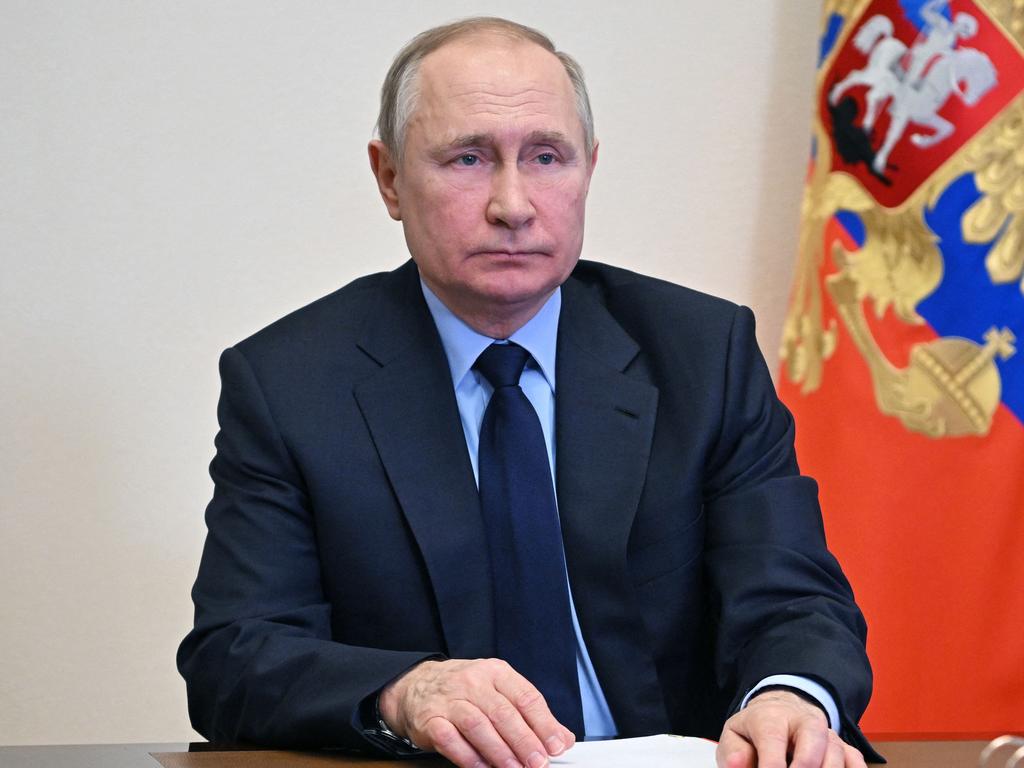
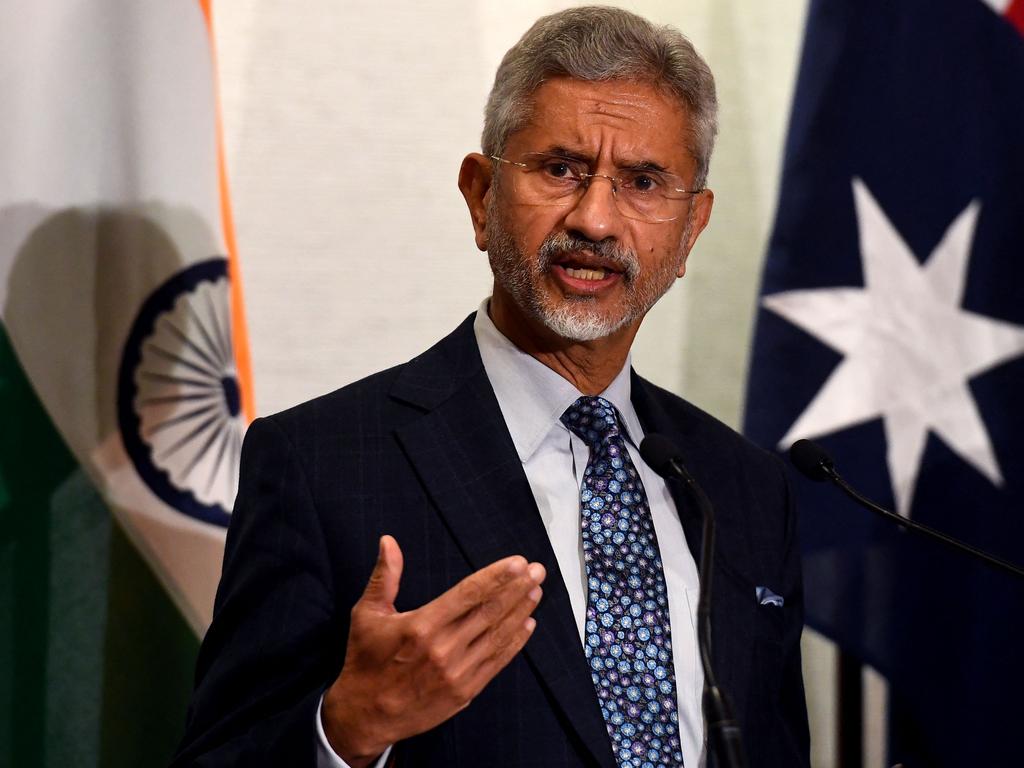
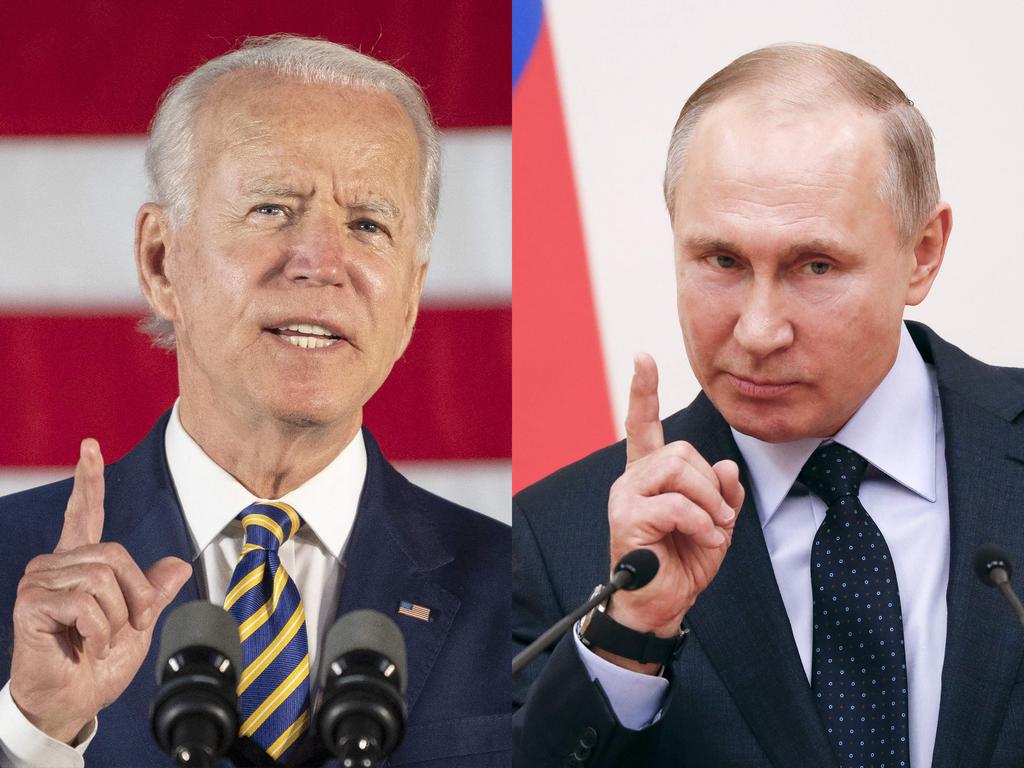


To join the conversation, please log in. Don't have an account? Register
Join the conversation, you are commenting as Logout